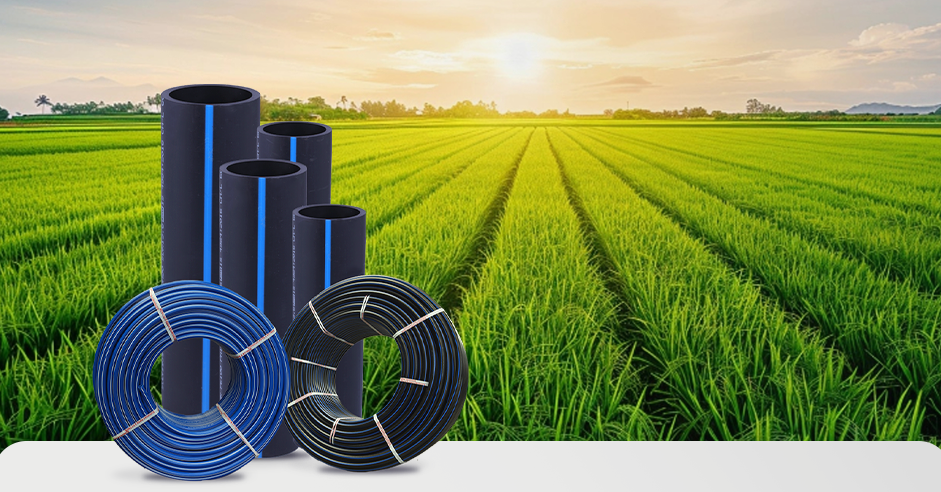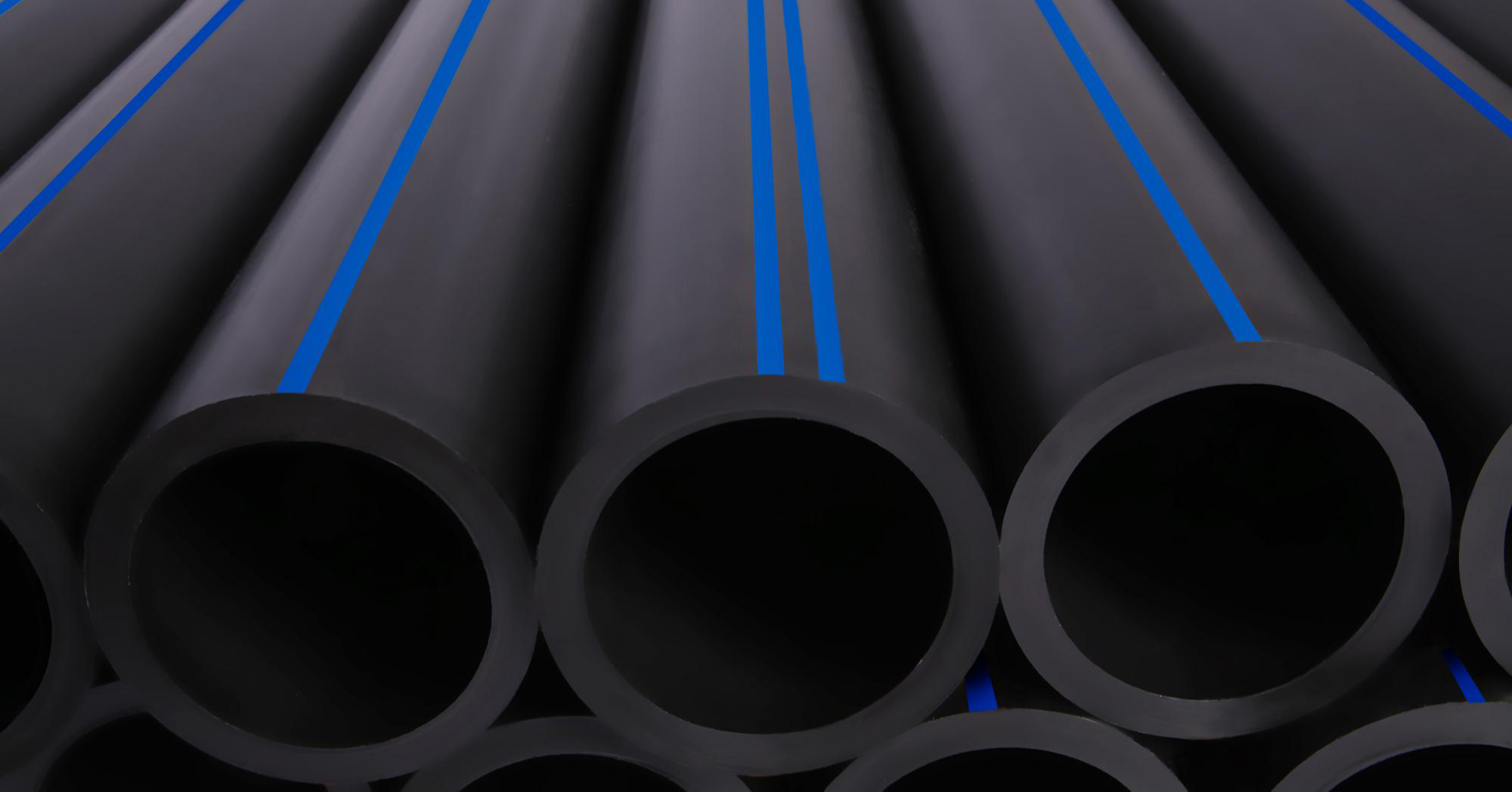The Role of Pipe Manufacturing Midland TX in Supporting Industry Growth
Wiki Article
Comprehending the Key Perks of HDPE Pipeline for Water and Wastewater Management
Making use of HDPE pipe in water and wastewater administration offers various benefits that warrant consideration. Its outstanding sturdiness and lengthy lifespan make it a preferred choice for numerous projects. In addition, the material's resistance to corrosion and chemical damages improves its reliability in different environments. Nonetheless, the benefits expand beyond simply durability and resistance. Exploring its cost-effectiveness and ecological influence exposes a lot more compelling factors for its widespread adoption in modern-day infrastructurePhenomenal Durability and Durability

HDPE pipe stands apart for its phenomenal resilience and longevity, making it a favored selection in water management systems. Built from high-density polyethylene, these pipelines can endure considerable stress and stress, ensuring dependable performance with time. Their robust nature enables them to sustain severe ecological problems, including temperature changes and soil activities, which can cause other materials to fail.
The life expectancy of HDPE pipelines frequently exceeds half a century, supplying a cost-effective option for districts and markets alike. In addition, the material's lightweight residential or commercial properties streamline installment, minimizing labor expenses and durations. This sturdiness decreases the requirement for frequent repairs or replacements, additionally enhancing its economic allure.
In water management applications, the integrity of HDPE pipes means fewer disruptions and improved solution continuity, making them essential to sustainable infrastructure advancement. The combination of toughness and long life strengthens HDPE's role as a keystone in efficient water management services.

Resistance to Rust and Chemical Damages
While lots of products catch corrosion and chemical damage with time, HDPE pipelines display impressive resistance, making them suitable for different water administration applications. This strength stems from the molecular framework of high-density polyethylene, which is naturally non-reactive and does not wear away like steels or deteriorate from direct exposure to extreme chemicals. Consequently, HDPE is very effective in environments with aggressive substances, such as wastewater systems that may contain acids, bases, and organic solvents.
In addition, HDPE pipes can stand up to ecological elements such as soil acidity and saline problems, even more boosting their suitability for varied applications (Pipe Manufacturing Midland TX). Their ability to keep architectural stability gradually minimizes the danger of leaks and failures, which is vital in making certain the safety and security and reliability of water distribution and wastewater management systems. As a result, the resistance to rust and chemical damages markedly contributes to the total performance and longevity of HDPE piping solutions
Cost-Effectiveness and Financial Advantages
When thinking about the monetary implications of water administration systems, the cost-effectiveness of HDPE pipes comes to be noticeable. These pipelines use lower setup and maintenance expenses contrasted to conventional products like metal or concrete. Their lightweight nature simplifies transportation and setup, resulting in lowered labor expenditures. In addition, HDPE pipes display a long lifespan, often going beyond half a century, which translates to fewer replacements and lasting financial savings.In addition, the resistance of HDPE to deterioration and chemical damages minimizes the need for pricey repair services and replacements. The pipes additionally support efficient water circulation, lowering power expenses connected with pumping systems. By minimizing leakages and water loss, HDPE pipelines add to significant economic advantages for towns and markets alike. On the whole, the first investment in HDPE piping can yield substantial monetary returns over the life expectancy of the water monitoring system, making it a prudent choice for sustainable infrastructure development.
Environmental Sustainability and Reduced Impact

Versatility and Flexibility in Installation
Due to their unique properties, HDPE pipelines use remarkable flexibility and flexibility in installment, making them suitable for a variety of applications. Their lightweight nature enables easier handling and transportation, reducing labor prices and installment time. HDPE pipes can be bent and formed to fit different surfaces and project demands, which is specifically valuable in challenging environments.Additionally, their resistance to rust and chemical damages permits installation in varied setups without the requirement for specialized safety finishings. The capacity to fuse joints develops a continual, leak-free system, boosting the total stability and dependability of the installment. HDPE's adaptability also fits ground activity, lowering the risk of damage in areas susceptible to moving soil. Generally, these attributes make HDPE pipelines not just functional yet also a preferred choice for water and wastewater management systems.
Frequently Asked Questions
How Does HDPE Pipe Compare to PVC in Water Management Applications?
HDPE pipe uses remarkable adaptability, resistance to deterioration, and resilience compared to PVC. Its lighter weight helps with much easier setup, while its long life expectancy reduces replacement costs, making HDPE a favored selection in water monitoring applications.What Is the Life-span of HDPE Piping Under Typical Conditions?
Under regular problems, HDPE pipelines can have a lifespan ranging from 50 to 100 years. Their durability and resistance to corrosion add to their lasting performance in various applications, making them a trustworthy selection for facilities.Are HDPE Pipes Recyclable After Their Life Span?
Yes, HDPE pipes are recyclable after their life span. Texas hdpe pipe manufacturer. They can be processed and repurposed right into brand-new products, substantially reducing environmental impact and advertising sustainability within the market, making them a green selection check here for piping solutionsWhat Is the Installment Refine for HDPE Water Lines?
The setup process for HDPE pipes includes site prep work, trenching, pipeline combination or mechanical joining, backfilling, and stress testing. Proper methods ensure a resilient and reliable system for transporting water and wastewater effectively.Can HDPE Piping Be Utilized for Both Potable and Non-Potable Water Systems?
Yes, HDPE pipelines can be used for both potable and non-potable water systems. Their convenience, durability, and resistance to deterioration make them ideal for numerous applications, making certain risk-free and efficient transport of water in different contexts.Report this wiki page